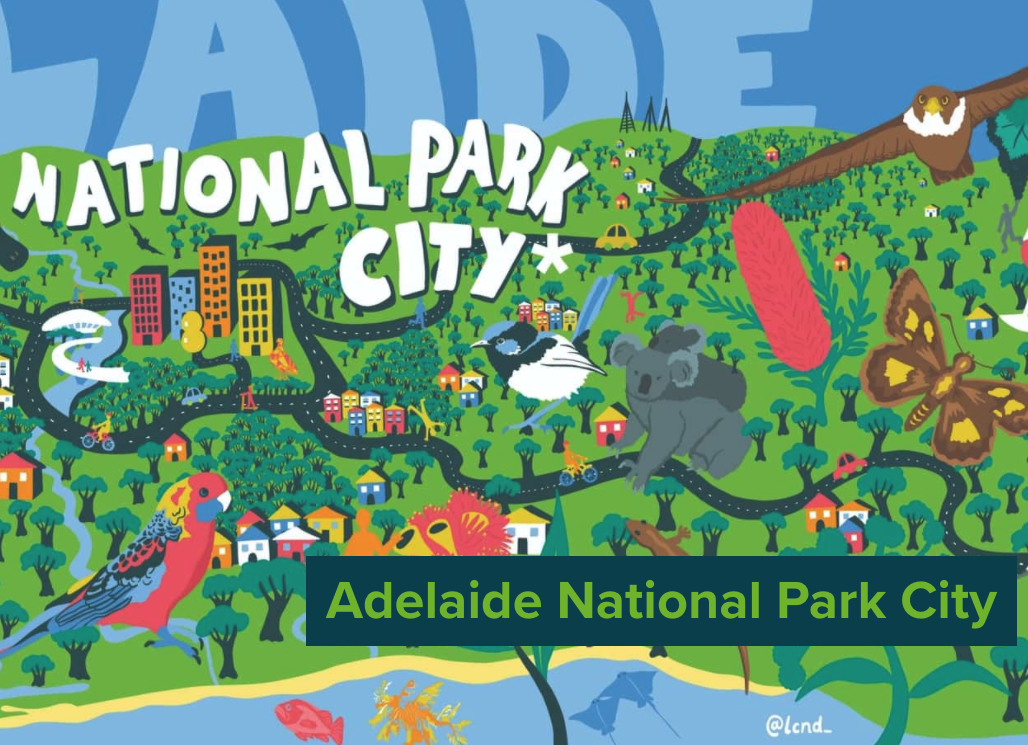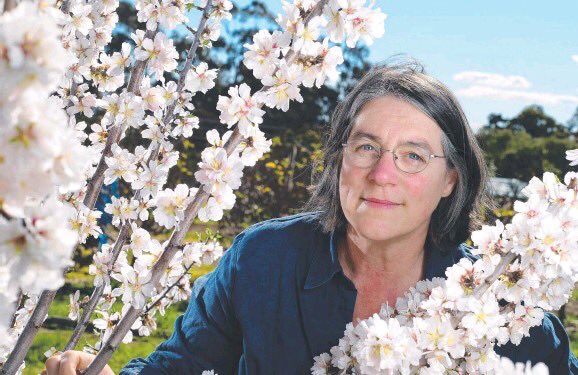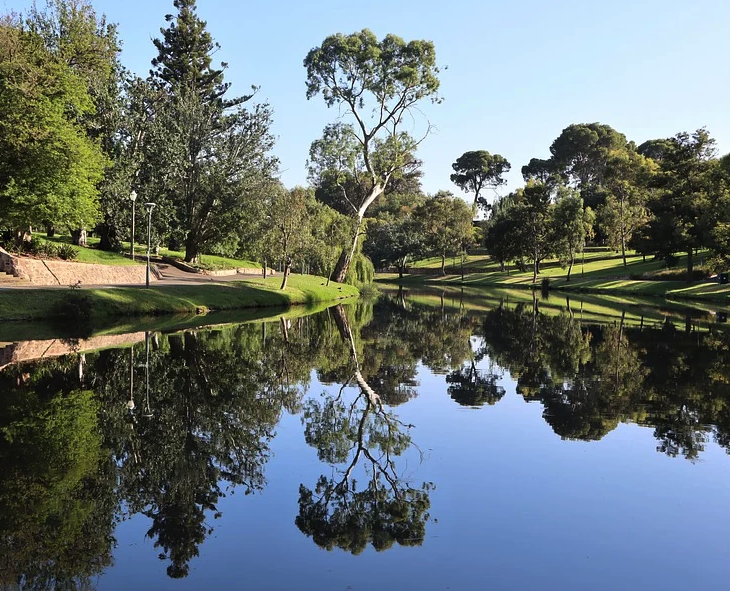In a major international coup for South Australia, Adelaide has been named the world’s second National Park City which will further enhance the city’s reputation as the most liveable in the country.
The UK-based National Park City Foundation confirmed Adelaide’s status of National Park City at the World Urban Park Congress on Friday night, making Adelaide the first in Australia and second in the world to receive the honour.
Minister for Environment and Water David Speirs said Adelaide becoming a National Park City will bring tourism, environmental and wellbeing benefits.
“This is a historic moment for South Australia with Adelaide now the world’s second National Park City after London and the first in Australia,” Minister Speirs said.
“Adelaide has already been recognised as the third most liveable city in the world and by officially becoming a National Park City this reputation will be further enhanced.
“Adelaide National Park City status isn’t just another title for our city, it is a trigger to promote and connect people with on-ground action to look after our environment for everyone’s health and wellbeing as well as boost our economy through increased tourism.
“We know that 95 per cent of Adelaide residents only need to travel around 400 metres to connect with an open, green area and the Marshall Liberal Government is investing record amounts in our parks to boost conservation efforts, improve the visitor experience and create jobs.
“Over the next few years, through our urban environmental board Green Adelaide, you’ll see some real on-ground action towards the Adelaide National Park City movement to create a cooler, greener and wilder city.
“This includes $5 million to green our CBD streets and places, $5 million to re-wild the River Torrens, and millions of dollars in grants to enable the community and councils to deliver climate resilient projects on-ground.
“Plus, the delivery of iconic rewilding projects like bringing platypus back to the Torrens, creating a more butterfly friendly city, and enhancing habitat and awareness about our city’s birds of prey.
“Adelaide’s push to become a National Park City was supported by the fact we already have 30 per cent green space, and diverse wildlife from 1,080 native plant species and 281 native species of birds, to 60 native fish species and 47 native mammal species, plus more than 58 species of reptiles.”
Green Adelaide Board Presiding Member and Environment Institute board member, Professor Chris Daniels said that Green Adelaide has driven Adelaide’s National Park City application on behalf of all of Adelaide’s people and nature.
“Adelaide is now a global leader, and everyone in Adelaide can get involved in so many ways,” Professor Daniels said.
“You can show your support by signing the Adelaide National Park City Charter, or by growing a little bit of nature in your backyard, front yard or with others in nearby open spaces.
Also, you can share your wonderful experiences of nature through pictures, posts, songs and art.
“Everyone, everywhere and every day can be celebrating our city’s diverse cultures and communities and our common connection with nature.
“This milestone for our city follows National Geographic recently naming Adelaide as the sixth most sustainable city in the world thanks to the green movement, and the years of effort by volunteers, government and organisations to look after our nature, which boosted our city’s credentials in our application.”
National Park Cities aim to be places where people and nature are better connected. It is a movement for everyone to take action everywhere and every day to be better connected with the environment and each other. Join the movement.
A public celebration to launch Adelaide National Park City will be held in autumn 2022. The National Park City Foundation Campaigner and London National Park City founder Dan Raven-Ellison invited Adelaide to be a National Park City on Friday night at the virtual World Urban Park Congress 2021. The National Park City Foundation led the assessment supported by World Urban Parks and the Salzburg Global Seminar.
Original article at the from the Government of South Australia.





